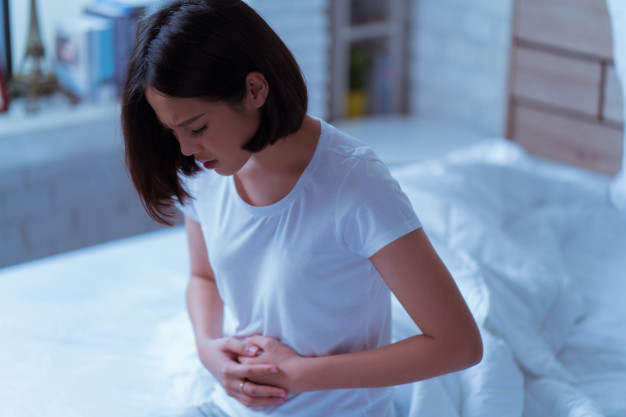What Is Polycystic Ovary Syndrome?
January 2020
The excessive hormonal production associated with PCOS can interfere with a woman's ability to ovulate — and it may also lead to skin and weight problems, and excess hair growth. Discover treatment options that may help.

Credits : freepik.com
Many people aren’t aware of polycystic ovary syndrome, or PCOS, but it’s not uncommon — the condition affects 5 percent to 10 percent of women of childbearing age. PCOS interferes with a woman's menstrual cycle and her ability to release eggs through monthly ovulation, and it is the most common cause of female infertility.
PCOS develops because a woman's body produces excessive levels of androgens, which are sometimes called "male hormones," but are also naturally produced by females. When androgen levels are too high, it can interfere with the release of eggs through ovulation.
Here’s something else to consider: While researchers haven’t proved that being overweight or obese will cause PCOS, many women who have PCOS do carry excess weight.
It's not clear what causes a woman to develop PCOS, either, but researchers believe these factors may play a part:
- Genetics. PCOS tends to run in families, so if your mother or sister has PCOS, you are at higher risk of developing it.
- High insulin levels. Women with PCOS tend to have high levels of insulin, which is thought to increase the production of androgens.
Common PCOS Symptoms
Since excessive production of androgens can affect many areas of your body, PCOS symptoms vary considerably. PCOS symptoms may include:
- Missed periods, or an irregular menstrual cycle. The excessive level of androgens that is associated with PCOS can make your menstrual periods infrequent, irregular, or even nonexistent.
- Infertility. Since women with PCOS may not ovulate, they often have trouble getting pregnant.
- Excess hair growth. The hormonal imbalances associated with PCOS can lead to excess hair growth on your back, chest, stomach, face, thumbs, and even your toes.
- Ovarian cysts. Since eggs are often not released from the ovarian follicles of women with PCOS, the immature follicles can fuse together to form large, painful cysts on the ovaries.
- Skin problems. Women with PCOS often experience oily skin, acne, dark patches of skin, or dandruff.
- Weight problems. It is still unclear whether weight problems lead to PCOS, or vice versa, but women who are obese are at increased risk of having PCOS.
- Miscarriage. If they do get pregnant, women with PCOS have an increased risk of miscarrying.
How PCOS Is Treated
Even though there is no cure for PCOS, its symptoms can often be managed, and fertility treatments can help some women with PCOS get pregnant. Lifestyle changes and treatment options that may be used to help manage PCOS include:
- Birth control pills. The Pill can reduce androgen levels, help regulate menstruation, and even clear acne in women who have PCOS.
- Weight control. If you are overweight, losing weight can be a very important part of PCOS treatment. Losing as little as 10 percent of your body weight can help regulate your insulin levels, and may resolve your symptoms and help restore your fertility.
- Dietary changes. Studies have shown that certain changes in your diet aimed at lowering your blood sugar levels and improving the way your body uses insulin may be able to help improve PCOS symptoms. So consume a diet low in saturated fat and one that consists of no more than 30 percent of total calories from fat. Avoid highly processed foods and foods with added sugars, and opt for fruits, vegetables, whole grains, and lean meats. Also, spread your calorie intake throughout the day, eating small, frequent meals.
- Diabetes medications. Though the U.S. Food and Drug Administration (FDA) hasn't approved it yet for treating PCOS, metformin, a type 2 diabetes medication, has shown promise in reducing PCOS symptoms.
- Fertility treatments. Certain fertility medications, including Clomid and Serophene (clomiphene), metformin with clomiphene, and gonadotropins, can help stimulate ovulation in women with PCOS to help them become pregnant. Also, in-vitro fertilization (IVF) can successfully help women with PCOS become pregnant.
- Anti-androgens. If cosmetic problems are a concern, anti-androgen medications, such as Aldactone (spironolactone) and Proscar and Propecia (finasteride), can help reduce acne and control excess body hair growth.
- Surgery. While surgery is not used as a first-line treatment for PCOS, a procedure known as "ovarian drilling" has been shown to stimulate ovulation in women with PCOS. Ovarian drilling involves laparoscopic surgery to puncture the ovary with an electrically charged needle to lower androgen levels, which may help stimulate ovulation.
If you are concerned you may have PCOS, talk with your doctor. The earlier PCOS is diagnosed and treated, the more likely you are to avoid complications.
Also read : 10 New Year's Resolutions which can make 2020 a good year for you
About Dr Bedekar Hospital For Women And Children in Thane:
Dr Bedekar Hospital Thane Offers Gynaecologist in Thane.
Do Get in Touch to Book Appointment With Our Experienced Team of Doctors.
Talk to Us On 022 2542 1438 / 9820913256 Or Email Us At bedekarhospital@gmail.com
Happy to Help!
Share This:
Source: everydayhealth.com


